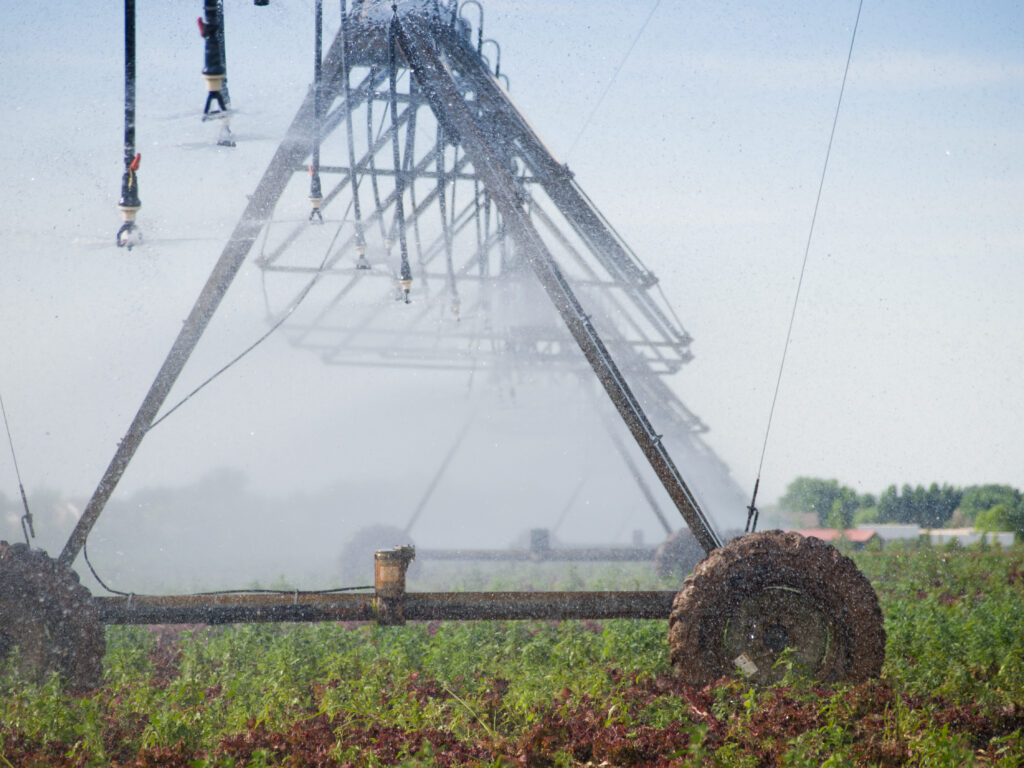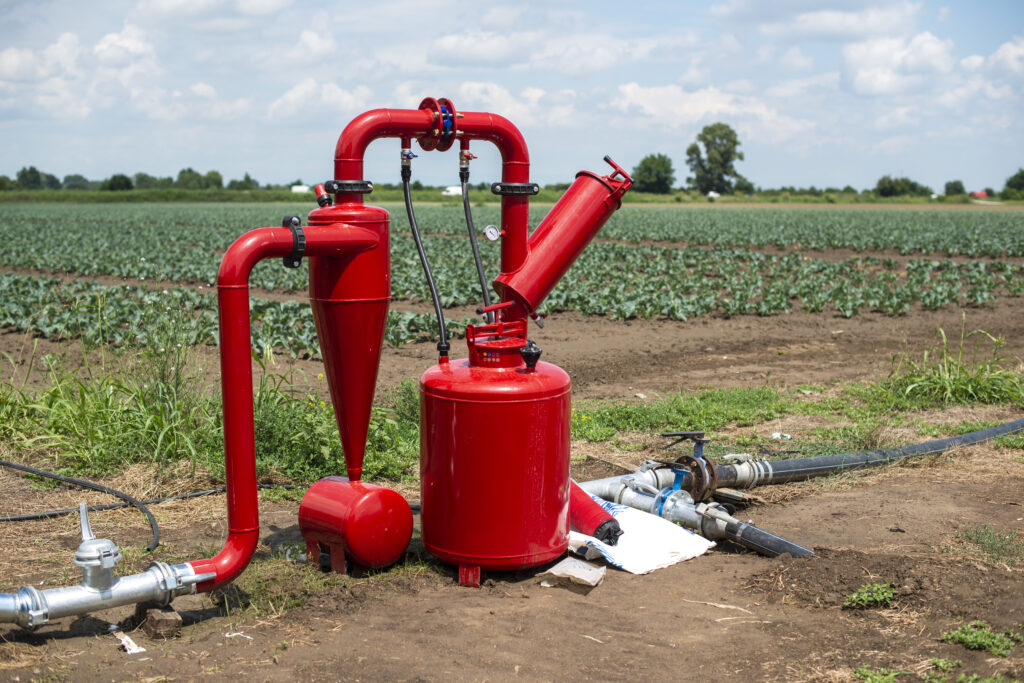An irrigation well is vital to agricultural operations, providing a reliable water source for crops and turf farms. Unlike municipal water supplies, irrigation wells draw water directly from the ground, ensuring that plants receive the necessary hydration for optimal growth. These wells are particularly important in areas where rainfall is insufficient or unpredictable.
Importance of Irrigation Wells in Agriculture
Irrigation wells play a critical role in sustaining agricultural productivity. They offer a dependable water supply that helps farmers manage water resources efficiently, leading to better crop yields and more consistent farming operations. By reducing reliance on municipal water, irrigation wells contribute to cost savings and resource conservation.
Common Issues with Irrigation Wells
While irrigation wells offer a multitude of benefits, there are a few issues to look out for.
Sediment Buildup
Sediment buildup is a common problem that can impair the efficiency of an irrigation well. Over time, sand, silt, and other particles can accumulate, reducing water flow and potentially damaging the pump. Regular cleaning and maintenance are essential to prevent sediment-related issues.
Pump Malfunctions
The pump is the heart of an irrigation well system. Malfunctions can occur due to wear and tear, electrical issues, or improper installation. Regular inspections and timely repairs are crucial to ensure the pump operates efficiently and to avoid costly downtime.
Contamination Concerns
Groundwater contamination can pose serious risks to both crops and human health. Contaminants such as pesticides, fertilizers, and industrial chemicals can seep into the water supply, making regular water quality testing and filtration essential to maintaining a safe and healthy irrigation system.
Best Practices for Irrigation Well Maintenance
The following tasks should be performed periodically to ensure your well is performing efficiently and effectively.
Regular Testing
Regular inspection and testing of your irrigation well are vital to detect issues early and maintain optimal performance. Schedule professional inspections with a reputable company, such as Waterways Water Service, at least once a year to check for mechanical problems, water quality issues, and overall system health.
Cleaning and Removing Sediment
Routine cleaning to remove sediment buildup is essential for maintaining water flow and pump efficiency. Use appropriate methods and tools to clean the well casing and pump, and consider installing a sediment filter to minimize future buildup.
Pump Maintenance Tips
Checking for Wear and Tear
Inspect the pump regularly for signs of wear and tear, such as cracks, corrosion, and worn-out seals. Early detection and replacement of damaged parts can extend the pump’s lifespan and maintain its efficiency.
Adhering to Manufacturer’s Guidelines
These guidelines provide specific instructions on usage, maintenance schedules, and troubleshooting tips, helping to maximize the pump’s performance and longevity.

Seasonal Maintenance Tips
Preparing for Winter
Winterizing your irrigation well is crucial to prevent freezing and damage. Drain all water from the system, insulate exposed pipes, and protect the pump from extreme cold. These steps will help safeguard your well and ensure it’s ready for use in the spring.
Spring Start-up Checklist
As winter ends, follow a spring start-up checklist to prepare your irrigation well for the growing season. Inspect the system for any winter damage, clean and test the pump, and ensure all components function correctly before resuming irrigation activities.
Professional Maintenance Services
Hiring professional maintenance services offers numerous benefits, including expert knowledge, advanced diagnostic tools, and comprehensive care for your irrigation well. Professionals can identify and address issues that might be missed during a routine self-inspection, ensuring your system remains in top condition.
What to Expect from a Professional Service
When you hire a professional for irrigation well maintenance, expect a thorough inspection, cleaning, and testing of the entire system. Professionals will provide detailed reports on the well’s condition, recommend necessary repairs or upgrades, and ensure compliance with local regulations and standards.

Schedule Your Well Maintenance with the Experts
For reliable and professional irrigation well maintenance, trust the experts at Waterways Water Service. With years of experience in water treatment, pump repair, and well drilling, we offer comprehensive solutions tailored to your specific needs. Our team uses the latest technology and techniques to ensure your irrigation system operates efficiently and lasts for years. Don’t leave your well maintenance to chance—choose Waterways Water Service for quality you can depend on. Contact us today to schedule a service and keep your irrigation system in top condition.
Irrigation Well FAQs
How often should I have my irrigation well inspected?
It’s recommended to have your irrigation well professionally inspected at least once a year to ensure optimal performance and early detection of potential issues.
What are the signs of sediment buildup in my well?
Signs include reduced water flow, unusual noises from the pump, and visible particles in the water. Regular cleaning can prevent severe buildup.
Can I clean the sediment from my well myself?
While minor cleaning can be done by the owner, professional cleaning ensures thorough removal and proper maintenance.
Why is winterizing my irrigation well important?
Winterizing prevents freezing and damage to the system, ensuring it’s protected during cold weather and ready for use in the spring.
What are the benefits of hiring professional maintenance services?
Professionals offer expert knowledge, advanced diagnostic tools, and comprehensive care, ensuring your system’s optimal performance and longevity.

